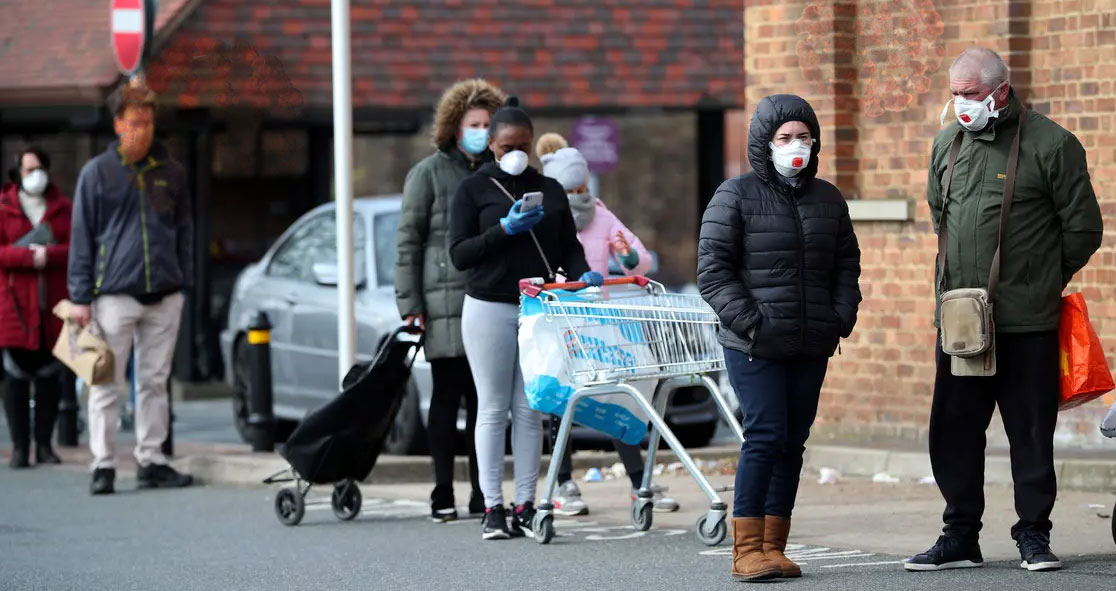A new study published in Physics of Fluids, by AIP Publishing, has found that simply wearing a facemask is not enough to control or prevent the spread of COVID without social distancing.
Researchers tested five different types of mask materials and studied how they were associated with the spread of droplets that carry the virus when you cough or sneeze.
They found that all types of materials tested reduced the number of air droplets that were spread, but at a distance of less than 6 feet, enough air droplets were still found through the material that can cause illness.
Study author Dr. Krishna Kota of New Mexico State University said, “A mask definitely helps, but if the people are very close to each other, there is still a chance of spreading or contracting the virus. It does not just mask that will help. It’s both the masks and distancing.”
The researchers created a machine that uses an air generator to mimic human sneezes and coughs. The air generator was used to blow tiny liquid particles, such as the airborne droplets of coughs and sneezes, through “laser sheets in an airtight square tube with a camera.”
The team then blocked the flow of the air droplets in the tube with those five different types of mask materials, which include a “regular cloth mask, a two-layer cloth mask, a wet two-layer cloth mask, a surgical mask, and a medical-grade N-95 mask,” according to Science Daily.
The regular cloth mask allowed about 3.6% of the droplets to go through, while the N-95 mask statistically stopped 100% of the air droplets.
However, at a distance of less than 6 feet, the masks that allow small percentages of droplets to go through can make someone sick, especially if a person with COVID coughs or sneezes several times.
It has been found that a single sneeze or cough may carry nearly 200 million virus particles, depending on how sick the person is. Anyone close to that person could catch the virus even if a mask blocks a huge percentage of those virus particles.
Dr. Kota explained, “Without a face mask, it is almost certain that many foreign droplets will transfer to the susceptible person.”
“Wearing a mask will offer substantial, but not complete, protection to a susceptible person by decreasing the number of foreign airborne sneeze and cough droplets that would otherwise enter the person without the mask,” he added. “Consideration must be given to minimize or avoid close face-to-face or frontal human interactions, if possible.”
Please note that the study also did not take leakage from masks into consideration, whether worn properly or improperly. This could have helped the researchers to determine the number of droplets that make their way into the air through masks. The article was originally published in Science Daily.























